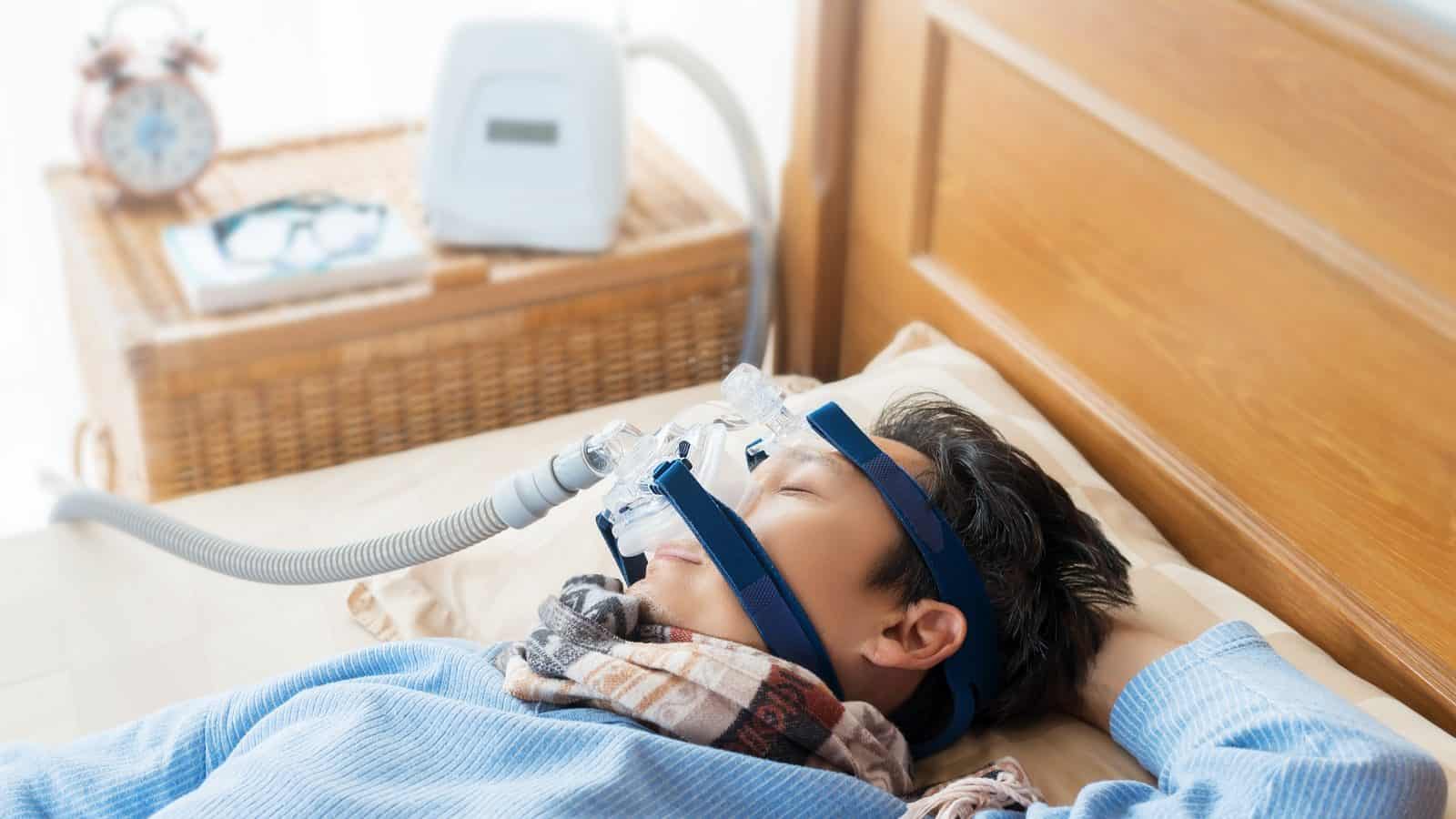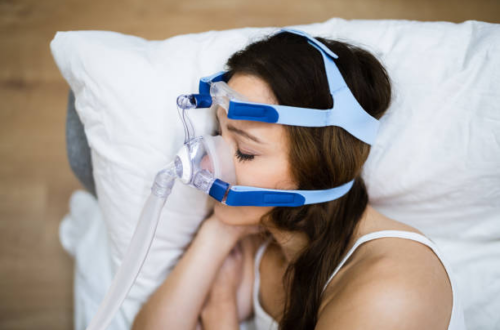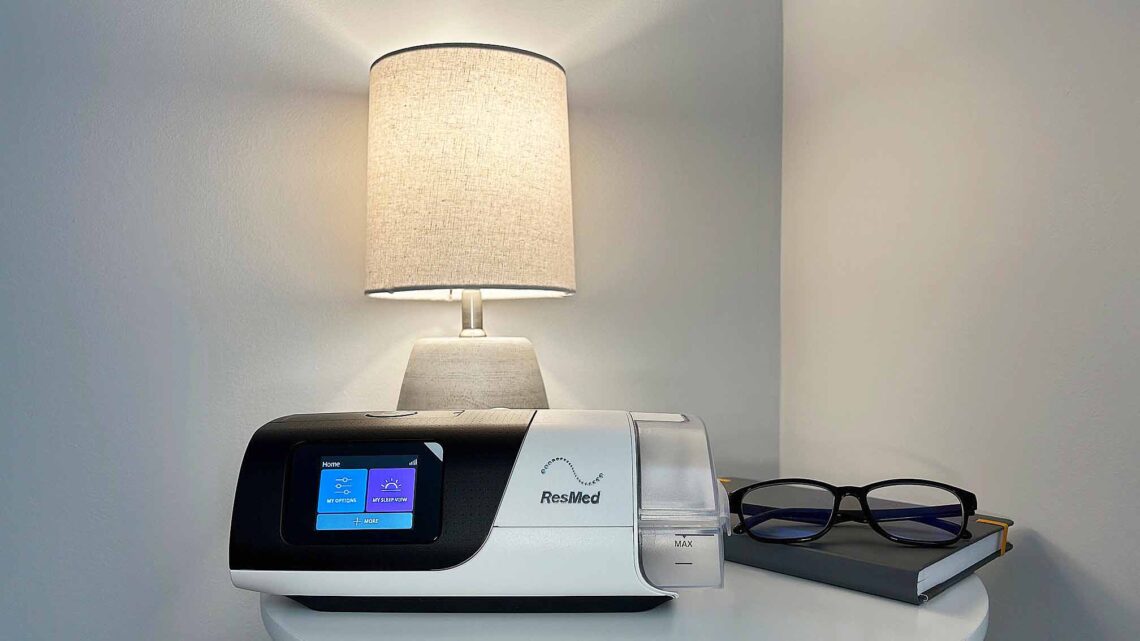
The Ultimate Guide to CPAP Machines: Choosing the Best for You
CPAP machines are a common treatment option for individuals with sleep apnea. Sleep apnea is a sleep disorder characterized by pauses in breathing during sleep, leading to fragmented sleep and numerous health issues if left untreated. In this guide, we will explore everything you need to know about CPAP machines and how to choose the best one for your needs.
Understanding CPAP Machines
What is a CPAP Machine?
A CPAP (Continuous Positive Airway Pressure) machine is a medical device that delivers a constant stream of pressurized air to the airway to prevent it from collapsing during sleep. It consists of a small air pump, a hose, and a mask or nasal pillows that the user wears over their nose and/or mouth. More accesories detail for CPAP machines may be get on https://store.airliquidehealthcare.com.au/en/cpap-machines
CPAP machines are specifically designed to treat sleep apnea, a common sleep disorder characterized by repeated pauses in breathing during sleep. These pauses, known as apneas, can last for a few seconds to a few minutes and can occur multiple times throughout the night. Sleep apnea can lead to various health problems, including daytime fatigue, high blood pressure, and an increased risk of heart disease.
When a person with sleep apnea uses a CPAP machine, the pressurized air acts as a splint, keeping the airway open and allowing for uninterrupted breathing. This helps to prevent the apneas and improve the quality of sleep.
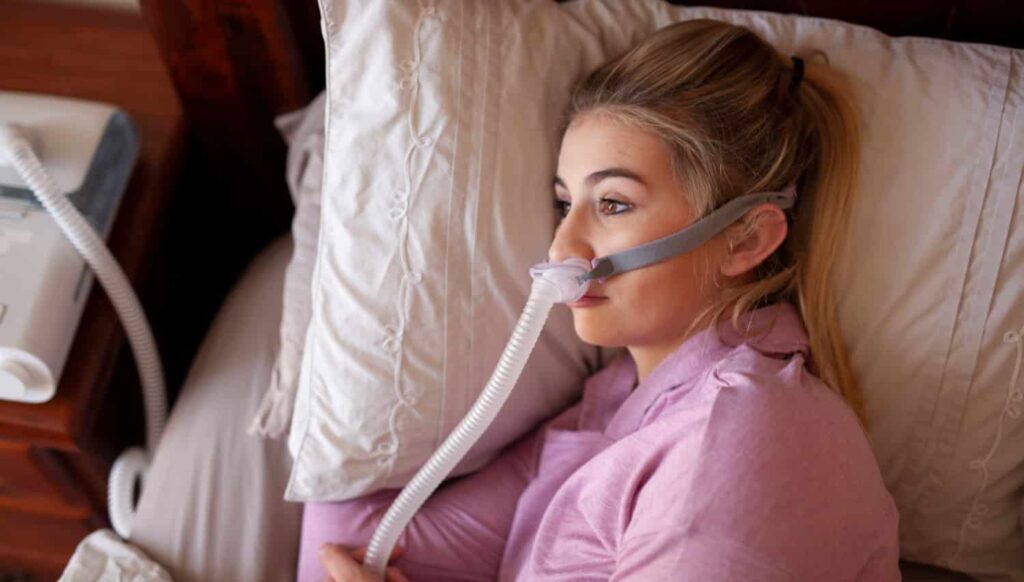
How Does a CPAP Machine Work?
The CPAP machine works by creating a positive pressure that keeps the airway open. When you use a CPAP machine, the pressurized air is delivered through the hose and mask, effectively splinting the airway open and allowing for uninterrupted breathing throughout the night.
The pressure settings on a CPAP machine can be adjusted to meet the specific needs of the individual. A sleep study, conducted by a sleep specialist, is often used to determine the optimal pressure level for each patient. The machine delivers the prescribed pressure consistently, ensuring that the airway remains open and the individual can breathe freely during sleep. Learn more how to buy CPAP machines online in Australia.
In addition to preventing apneas, CPAP machines also help to reduce snoring, another common symptom of sleep apnea. The pressurized air helps to keep the soft tissues in the airway from collapsing and vibrating, which is the main cause of snoring.
The Importance of CPAP Machines for Sleep Apnea
CPAP machines are the gold standard treatment for obstructive sleep apnea, the most common type of sleep apnea. By ensuring a continuous flow of air, CPAP machines help to eliminate sleep apnea events, providing better quality sleep and reducing the associated health risks.
Untreated sleep apnea can have serious consequences on an individual’s overall health and well-being. The repeated interruptions in breathing can lead to chronic fatigue, decreased cognitive function, and an increased risk of accidents, both at home and on the road. Sleep apnea has also been linked to a higher risk of developing conditions such as diabetes, stroke, and heart disease.
CPAP machines offer a non-invasive and highly effective solution for managing sleep apnea. They provide a constant supply of pressurized air, ensuring that the airway remains open and the individual can breathe without interruptions. With regular use, CPAP machines can significantly improve sleep quality, alleviate symptoms, and reduce the risk of associated health complications.
It is important to note that the effectiveness of CPAP therapy relies on consistent and proper usage. Adhering to the recommended treatment plan and regularly maintaining the CPAP machine and its components are essential for optimal results.
Different Types of CPAP Machines
Continuous Positive Airway Pressure (CPAP) machines are a common treatment option for individuals with sleep apnea. They work by delivering a constant flow of pressurized air to keep the airway open during sleep. There are several different types of CPAP machines available, each with its own unique features and benefits.
Standard CPAP Machines
The standard CPAP machine is the most basic type of CPAP device. It delivers a constant pressure throughout the breathing cycle, ensuring that the airway remains open. This type of machine is a reliable and effective option for individuals with mild to moderate sleep apnea without specific requirements for advanced features.
Standard CPAP machines are typically easy to use and maintain. They consist of a motor that generates the airflow, a humidifier to add moisture to the air, and a mask or nasal pillows that deliver the pressurized air to the user’s airway.
Auto-adjusting CPAP Machines
Auto-adjusting or Automatic Positive Airway Pressure (APAP) machines are designed to provide personalized therapy by automatically adjusting the pressure based on the user’s needs. These machines continuously monitor the user’s breathing patterns and adjust the pressure accordingly, providing optimal therapy throughout the night.
One of the main advantages of auto-adjusting CPAP machines is their ability to adapt to changes in the user’s sleep patterns. They can detect variations in breathing and adjust the pressure in real-time, ensuring that the airway remains open and the user receives effective treatment.
Bi-level CPAP Machines
Bi-level or Bilevel Positive Airway Pressure (BiPAP) machines are suitable for individuals who find it difficult to exhale against the pressure of a standard CPAP machine. These machines provide two pressure settings: a higher one during inhalation and a lower one during exhalation, making breathing more comfortable.
Bi-level CPAP machines are often recommended for individuals with certain medical conditions, such as chronic obstructive pulmonary disease (COPD) or congestive heart failure, who may require different pressure levels during inhalation and exhalation.
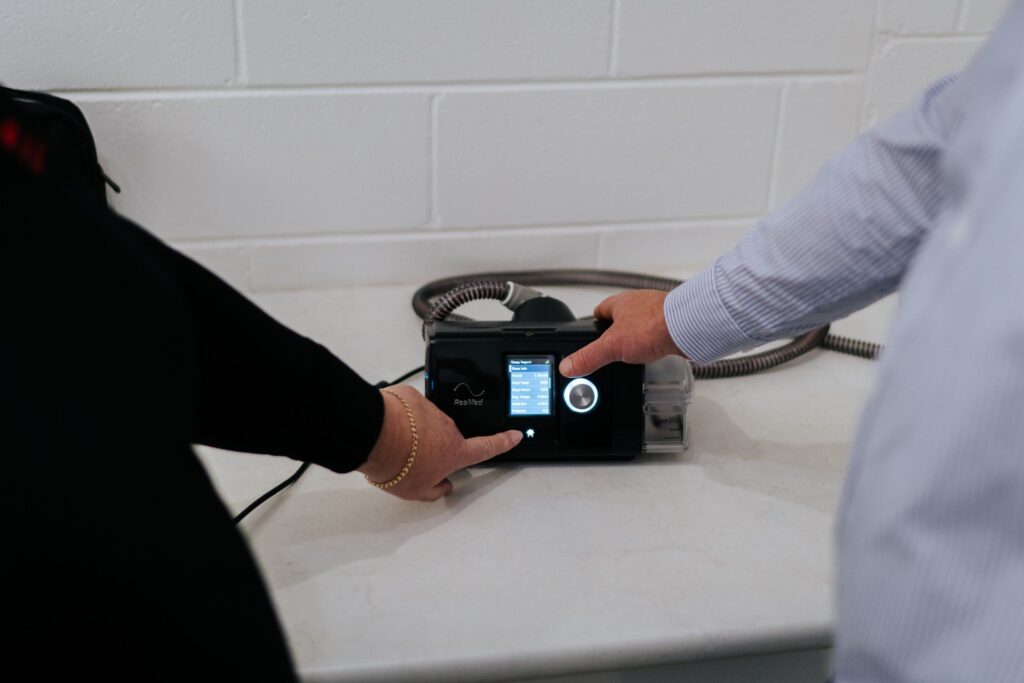
Travel CPAP Machines
Travel CPAP machines are designed for individuals who frequently travel and need a portable solution to continue their sleep apnea therapy while on the go. These machines are compact and lightweight, making them easy to transport.
Travel CPAP machines often feature a smaller design without compromising on performance. They may have built-in battery options or be compatible with external battery packs, allowing users to use them even in environments without easy access to power outlets.
Despite their smaller size, travel CPAP machines still provide the necessary pressure to keep the airway open and effectively treat sleep apnea.
When choosing a CPAP machine, it is important to consult with a healthcare professional who can assess your specific needs and recommend the most suitable option. Whether you opt for a standard, auto-adjusting, bi-level, or travel CPAP machine, the goal is to find a device that provides effective therapy and helps improve your sleep quality and overall well-being.
Factors to Consider When Choosing a CPAP Machine
Your Specific Sleep Apnea Diagnosis
Before choosing a CPAP machine, it’s essential to have a clear understanding of your sleep apnea diagnosis. Sleep apnea is a sleep disorder characterized by pauses in breathing or shallow breaths during sleep. There are three main types of sleep apnea: obstructive sleep apnea, central sleep apnea, and complex sleep apnea syndrome. Each type requires specific features or settings in a CPAP machine to effectively treat the condition.
Obstructive sleep apnea is the most common form and occurs when the muscles in the back of the throat fail to keep the airway open. Central sleep apnea, on the other hand, is caused by a failure of the brain to transmit the proper signals to the muscles that control breathing. Complex sleep apnea syndrome is a combination of both obstructive and central sleep apnea. Understanding your specific sleep apnea diagnosis is crucial in selecting the right CPAP machine to address your unique needs.
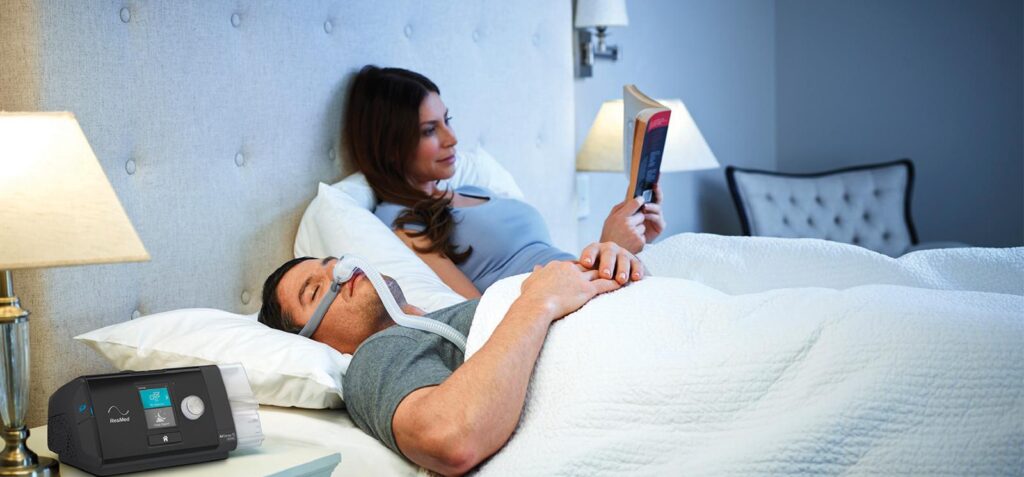
Comfort and Fit
Comfort and fit are crucial when selecting a CPAP machine. It’s essential to choose a mask style that is comfortable for you and ensures a secure fit. There are various mask styles available, including nasal masks, full-face masks, and nasal pillow masks. Nasal masks cover only the nose, full-face masks cover both the nose and mouth, and nasal pillow masks have small cushions that seal around the nostrils.
When trying different mask styles, consider factors such as the size and shape of your face, any facial hair, and personal preferences. The mask should create a seal without causing discomfort or irritation, allowing for a good night’s sleep. Some masks also come with adjustable straps or headgear to provide a customized fit. Take the time to find the right mask that suits your comfort needs and ensures an effective treatment experience.
Noise Level
Noise level is another consideration when choosing a CPAP machine. Some machines are quieter than others, which can be particularly important if you have a sleeping partner who may be disturbed by loud noise. The noise level of a CPAP machine is measured in decibels (dB). Look for machines with low decibel ratings for a peaceful sleep environment.
Modern CPAP machines often come with advanced noise reduction technology, such as whisper-quiet motors and sound-dampening materials. These features help minimize noise and create a more serene sleep environment. Additionally, some machines offer a “ramp” feature that gradually increases the air pressure, reducing any sudden noise disruptions during the initial stages of sleep.
Portability and Size
If you frequently travel or need the flexibility to move your CPAP machine around the house, portability and size are key factors to consider. Traditional CPAP machines are larger and less portable, making them less suitable for travel. However, there are now travel-friendly machines available that are lightweight and compact, making them easy to pack and transport.
Travel-friendly CPAP machines often have a smaller footprint and may come with a carrying case or travel bag for convenience. Some machines also have universal power adapters, allowing you to use them internationally without the need for voltage converters. Consider your lifestyle and the level of portability you require when selecting a CPAP machine.
Cost and Insurance Coverage
CPAP machines can vary significantly in price, so it’s essential to consider your budget. The cost of a CPAP machine depends on various factors, including the brand, features, and technology. It’s worth noting that investing in a high-quality machine can contribute to better treatment outcomes and long-term durability.
Additionally, check with your insurance provider to determine what portion, if any, of the CPAP machine cost will be covered. Some insurance plans may cover a portion or the full cost of a CPAP machine, depending on your specific policy. It’s important to understand your insurance coverage and any requirements or documentation needed to ensure reimbursement.
By understanding CPAP machines, considering the different types available, and evaluating the factors relevant to your sleep apnea diagnosis, comfort, and lifestyle, you can make an informed decision in choosing the best CPAP machine for a restful night’s sleep. Remember to consult with your healthcare provider for personalized recommendations and guidance in selecting the most suitable CPAP machine for your needs.



